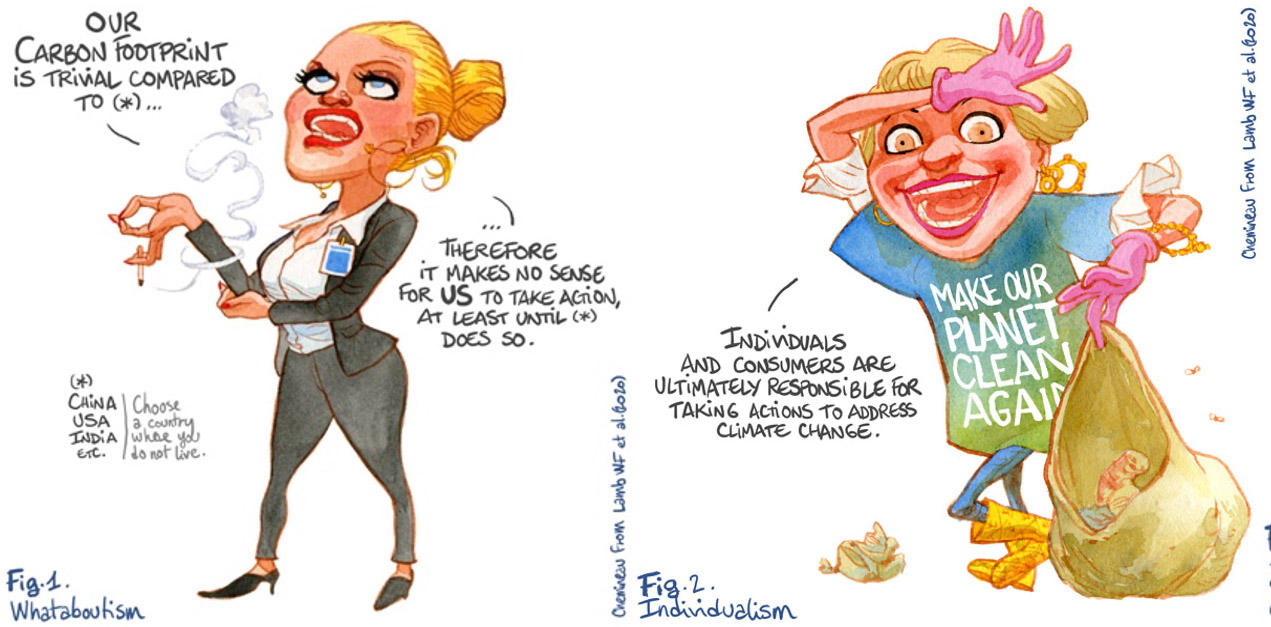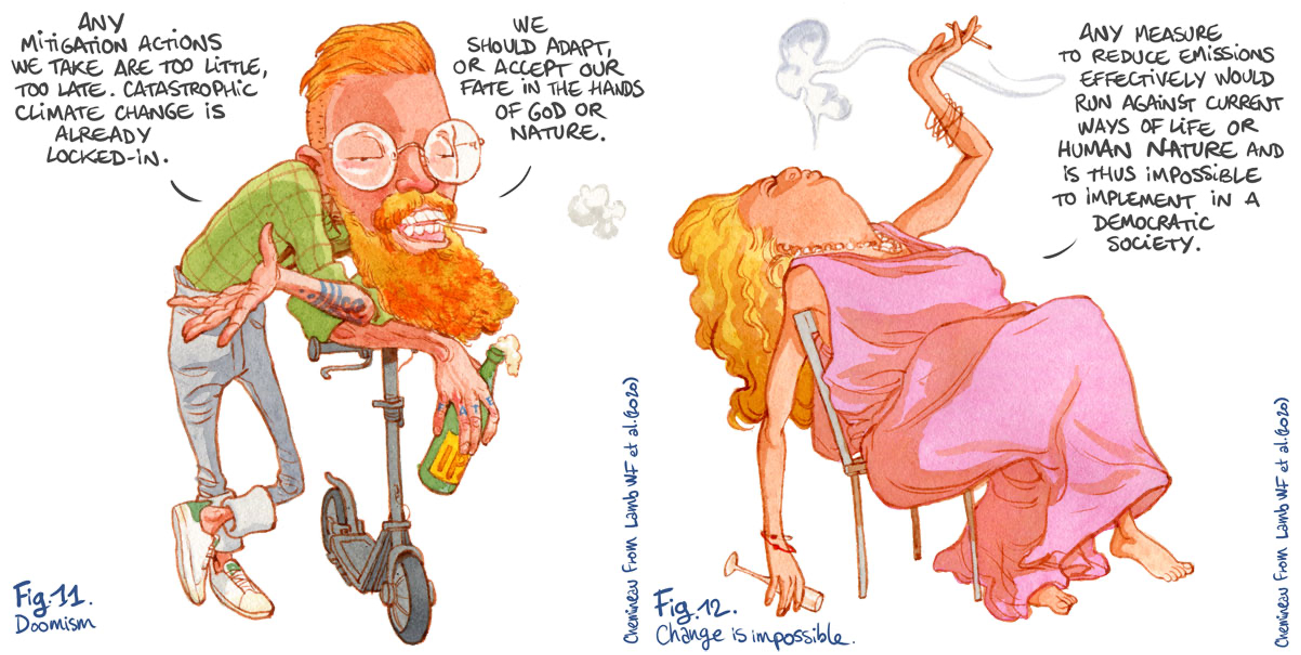Climate sceptics have now moved away from climate denial to climate delay
By Georgia Savvidou
Cypriots are expected to experience the effects of climate change sooner and to a higher degree than many other Europeans as the Mediterranean region has been identified as a climate change hotspot. In fact, significant decline in rainfall in the region, and especially eastern Mediterranean, has already been observed in the past years coupled with a series of fires and biodiversity loss. Unfortunately, despite the undeniable impacts of climate change, many Cypriots, including decision-makers, are still unaware that climate change is a real and urgent issue. As a result, actions combating climate change are far out of proportion compared to the magnitude of the problem.
Over the decades climate change realities have been questioned by climate skeptics and faced numerous misinformation campaigns. The history of the public debate about climate action has been going through different phases. The first phase was “climate change is not real”. Then when this could not be argued anymore, we moved on to “climate change is real but not caused by humans”. Third we had the phase “climate change is real, maybe caused by humans but it’s not that bad”. Now we are in phase four according to which “climate change is real, caused by humans, it’s really bad…but someone else is responsible or we can’t do anything about it anymore or we can do something about it as long as it’s something trivial (and ineffective) or doing something about it will be too expensive”.
The IPCC reports published over the past years have debunked all four myths, leaving no doubt that climate change is real, caused by humans, has catastrophic impacts on the living world and most importantly that we can fix it. Phases 1 to 3 have long been debunked by science. The scientific evidence is so clear that any discourse not accepting the existence of climate change or that it is caused by human activities or that it is affecting every corner of the planet’s land, air and sea is deemed to fail. That is why, climate sceptics have now moved away from climate denial to climate delay, arguing for minimal or no action, or shifting the responsibility of climate action to others. But the science, again, is clear; the IPCC report published earlier this year summarizes an abundance of evidence that mitigating climate change is possible. The reports outline the climate actions needed across different sectors and parts of the world. They clearly communicate that we have the technological solutions, what we need now is the political will and action.
But the political will is often hampered, directly or indirectly, by interest groups advocating against climate action. Given the urgency of climate change, we cannot afford further delaying climate action. It is therefore essential to be aware of the different strategies used for climate delay so that we can easily identify them and avoid getting tricked or wasting time.
The good news is, while some of our Cypriot politicians are still stuck in the outdated phases one and two, scientists have been busy studying the strategies currently used by proponents of climate delay that fall under phase four and have come up with a framework to help identify them. In total they have found 12 strategies that can be grouped under four categories. All the discourses accept that climate change is real but justify inaction or insufficient efforts.
The first category of strategies, called “redirect responsibility”, is trying to shift responsibility by being concerned with who needs to take action first and who has the biggest responsibility.
In our journey to a future away from fossil fuels, individual action is essential but not sufficient; we most importantly need system-wide changes. At the same time, focusing on individual action only can take energy away from collective action which is essential. Oil giants such as ExxonMobil and BP seem to have mastered the skill of doing just that, convincing people that it’s not the fault of the oil giants, but that of individuals. This strategy is called “Individualism”.
“Whataboutism”, another strategy in the first category is one I would not be surprised to see being used by Cypriot politicians. “Whataboutism” in the case of Cyprus would be to argue that we are a small country with a small share of global emissions and therefore any transformative action combating climate change won’t make a difference. Only that, a journey of a thousand miles begins with a single step or as we say in Greek “φασούλι το φασούλι γεμίζει το σακούλι” (one bean at a time, the sack fills up). Adding the efforts of small countries together can lead to a high global impact. Besides, the science is clear, every ton of emissions reduction matters if we are to keep global temperature from exciding safe levels.
In the second category called “push non-transformative solutions”, we see efforts to emphasize climate solutions that are trivial, diffusing the focus from measures that can have a meaningful impact. The picture I get in my head is that of a paper straw in plastic wrap.
These include overrelying on technologies that are not commercial or proven yet (“technological optimism”), setting and communicating ambitious goals but not enacting the policies to reach those goals (“All talk, little action”), claiming vaguely that fossil fuels can contribute to the solution (“fossil-fuel solutionism”), and advocating for voluntary measures instead of prohibitive policies, like a cap or tax on carbon emissions (“no sticks, just carrots”).
The third category, called “emphasise the downsides”, highlights the potential trade-offs of specific climate solutions disregarding the bigger picture. Sure, decarbonizing our economy comes at a certain cost, but the benefits far outweigh the costs. In addition, the faster we realize the importance of taking climate action the more time we will have to manage any trade-offs that arise in an inclusive and fair manner.
Cyprus has among the lowest number of charging points per 100 km in the EU, far behind Malta with 3.4 charging points per 100 km. An example in this category would be to oppose adding charging stations for electric cars, arguing that such an intervention would cause job losses in gasoline businesses but disregarding the negative implications of failing to implement such a climate measure to, for example, health due to air pollution caused by fossil fuel cars, or the economic loss to the businesses due to supply chain issues in fossil fuel supply chains, or even the fines to EU for not complying with certain EU regulations or the possibility of implementing transformational measures, such as gas stations being replaced by electric charging stations.
A final category, called “surrender”, includes strategies that are backing a very passive state of simply giving up. According to this category, we cannot change, and if we could, it would be too late anyway. Unlike all other categories that seem to agree that mitigation is possible strategies in this category create doubt to the notion that mitigation works, creating a sense of doom and fear. The goal, once more, is to discount policies and measures that can be implemented rapidly and have a meaningful impact.
It’s likely that you have already heard a climate delay strategy in your conversations with friends and colleagues or from someone powerful or famous. That person might have intentionally used one of the strategies, or just unintentionally reproduced the rhetoric created by proponents of climate delay.
Discussing different technological and policy measures for addressing climate change, their potential trade-offs as well as who needs to take more responsibility is important and necessary. But in doing so, all of us, and most importantly the youth, who will be the most affected by climate inaction than any other group of the Cypriot society, needs to be equipped with the right knowledge to identify discourses of climate delay and misinformation and demand a safe future away from catastrophic climate change.
Georgia Savvidou is an energy sustainability researcher and co-author of the UN Intergovernmental Panel on Climate Change (IPCC) Working Group II report published on February 28, 2022




